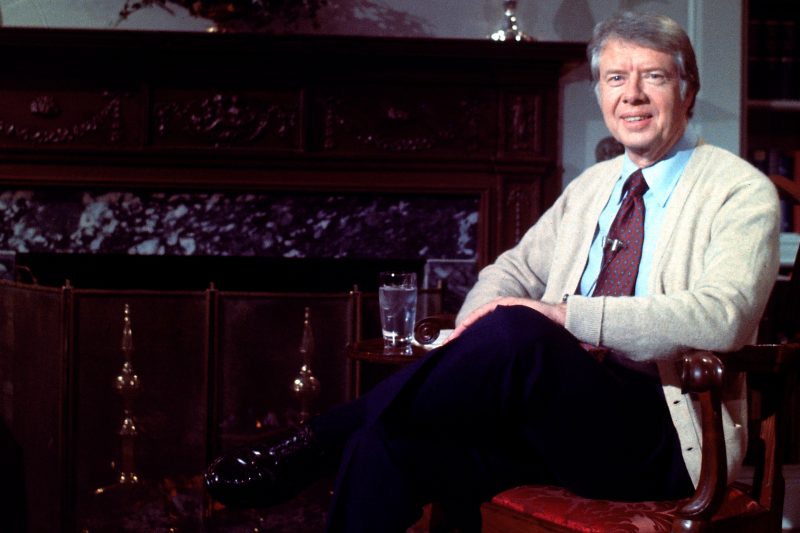In 1977, newly elected President Jimmy Carter made a simple fashion choice that would have far-reaching political consequences. Opting to wear a cardigan sweater rather than turning up the heat in the White House, Carter aimed to lead by example in promoting energy conservation during a time of oil crises and nationwide energy shortages. However, this seemingly innocuous act of personal energy thriftiness sparked years of Republican backlash that would come to define Carter’s presidency and legacy.
Carter’s decision to don a sweater became a symbolic representation of his energy policy and broader political values. By publicly advocating for energy conservation and emphasizing the importance of personal responsibility in addressing the nation’s energy challenges, Carter sought to inspire Americans to make small lifestyle changes that could collectively lead to significant energy savings. However, his display of frugality was met with criticism and ridicule from political opponents who viewed it as out of touch or insufficient in addressing the complex energy issues facing the country.
Republican backlash against Carter’s sweater-wearing was fueled by a combination of genuine policy disagreements and strategic political maneuvering. Conservatives seized upon the image of Carter as a well-intentioned but ineffective leader, using the sweater incident to paint him as weak and lacking in the resolve necessary to address national security and economic concerns. By framing Carter’s energy policies as emblematic of a larger trend of government overreach and individual sacrifice, Republicans were able to mobilize opposition and drive a wedge between Carter and the American public.
Critics of Carter’s energy policies saw the sweater incident as a prime opportunity to attack his administration and push back against what they perceived as government intrusion into private life. By focusing on the superficial aspects of Carter’s messaging rather than engaging with the substance of his proposals, Republicans were able to create a narrative that positioned the president as an out-of-touch elitist who was imposing unnecessary hardships on the American people. This caricature of Carter as a bumbling, ineffectual leader would come to define much of the conservative opposition to his presidency.
In the end, the backlash against Jimmy Carter’s decision to wear a sweater was indicative of the broader political climate of the late 1970s and early 1980s. By turning a simple act of personal energy conservation into a point of contention and ridicule, Republicans were able to undermine Carter’s credibility and sow doubt about the efficacy of his policies. While Carter’s presidency ultimately faltered for a variety of reasons, the sweater incident stands as a poignant example of how a seemingly insignificant gesture can have lasting political implications.
